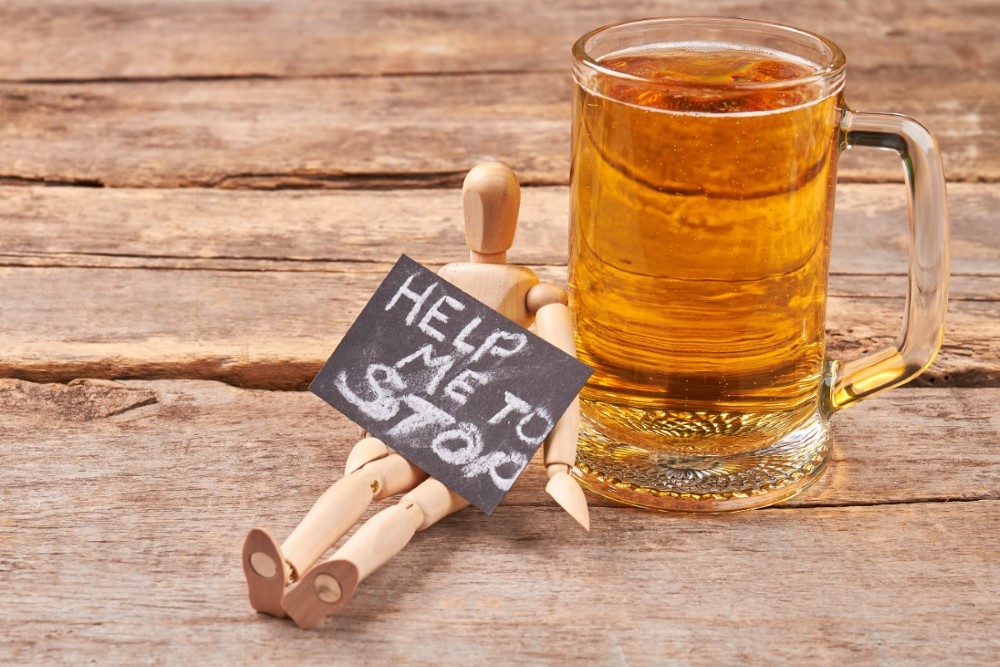We love the idea of rock bottom. It gives chaos a clean narrative. It tells us there’s a moment, one unbearable crash, that forces change. It makes addiction feel cinematic, a single breaking point, a dramatic realization, and then redemption. But that story, comforting as it sounds, is a lie.
For most people, rock bottom isn’t one moment. It’s a series of quiet collapses, small humiliations, private regrets, emotional decay. Some never crash dramatically, they just keep living in slow decline. The myth of rock bottom is dangerous because it convinces people to wait for disaster before they believe they’re allowed to get help. It tells families to hold on for proof of destruction before they intervene. It makes suffering a prerequisite for change.
But change doesn’t always come from breaking. Sometimes it comes from noticing. From the whisper that says, this can’t be all there is.
The Fantasy of the Crash
The cultural obsession with “hitting bottom” comes from our love of simple stories. It’s easier to understand addiction as a linear arc: the descent, the collapse, the redemption. Movies and memoirs sell this version because it’s neat, it gives suffering a shape.
But real life doesn’t work that way. Some people lose everything and still don’t stop. Others seek help long before they lose anything tangible. Addiction isn’t measured by how far you fall; it’s measured by how much of yourself you’ve lost.
The fantasy of the crash comforts us because it creates distance. We can tell ourselves, I haven’t lost my job, my house, or my family, so I’m not that bad. We mistake functionality for wellness. But high-functioning addiction is still addiction. Quiet desperation is still destruction, it just looks tidy.
The Myth Keeps People Sick
The idea of rock bottom delays recovery. It gives addicts permission to keep using, I’m not there yet. It tells them there’s a future version of suffering that will finally justify quitting. But the truth is, most people who wait for bottom never reach it. They just adapt to deeper levels of pain.
Addiction adjusts to your threshold. You get used to misery the same way your body gets used to substances. You normalize dysfunction. You find new ways to rationalize, minimize, excuse. Every day you wake up still managing to function feels like proof you haven’t fallen far enough.
That’s the trick. Addiction doesn’t need to destroy you overnight, it just needs to keep you comfortable enough not to change.
Comfort Can Be More Dangerous Than Collapse
For some, the most lethal stage of addiction isn’t the chaotic one, it’s the stable one. The bills still get paid. The relationships still exist. The world still sees competence. But inside, everything is shrinking. Joy, connection, self-respect, all quietly eroding. This is what makes the myth of rock bottom so destructive. It only recognizes visible suffering. It ignores the kind that hides behind performance, the smiling addict, the functioning alcoholic, the overachiever who drinks at night to quiet the noise.
Collapse doesn’t always look like losing your home. Sometimes it’s lying awake in a perfect apartment feeling hollow. Sometimes it’s working twelve hours a day to avoid yourself. Sometimes it’s the numbness of realizing you haven’t felt anything real in years. That’s rock bottom too, it just doesn’t make headlines.
Why the Brain Doesn’t Need a Crash to Change
Neuroscience tells a different story than pop culture. The brain doesn’t need catastrophe to heal, it needs awareness and repetition. Change begins not when you lose everything, but when you begin to notice patterns, the same decisions, the same regrets, the same hangovers, emotional or otherwise.
Every time you catch yourself thinking this again?, your brain is presenting an opportunity. It’s not a punishment, it’s recognition. You don’t need to burn down your life to rebuild it. You just need to stop lying to yourself about the fire already spreading.
The people who recover before disaster strikes aren’t lucky, they’re honest. They stop waiting for pain to become unbearable. They decide that “bad enough” means whatever hurts now.
The Seduction of the Struggle Story
Part of the reason we cling to the idea of rock bottom is because it’s narratively satisfying. It makes redemption feel earned. We want to believe in the phoenix moment, the crash, the lesson, the rebirth. But recovery isn’t that dramatic. It’s tedious, repetitive, and deeply unglamorous.
There’s no single moment of clarity for most people. There are hundreds of small ones, none particularly cinematic. The morning you pour a drink and feel disgust instead of relief. The night you tell a lie and finally feel the weight of it. The text you send that you can’t justify anymore.
The real story of recovery isn’t the fall, it’s the accumulation of quiet awakenings. And those awakenings are harder to sell because they don’t come with a soundtrack.
Why Families Wait Too Long
The myth of rock bottom doesn’t just trap addicts, it traps families too. Loved ones often wait for dramatic proof before stepping in. They say things like, They’re not that bad yet. They’re still working. They haven’t lost their house.
But waiting for bottom is like waiting for a fire to spread before calling for help. By the time the collapse comes, the damage is harder to repair, sometimes irreversible. Intervention isn’t about hitting bottom; it’s about creating a turning point before bottom arrives.
Families don’t need to wait for wreckage. They need to recognize patterns of decline, dishonesty, isolation, emotional volatility. Those are red flags, not phases. The goal isn’t to punish, it’s to interrupt.
The Psychology of “Not Yet”
“Not yet” is one of the most dangerous phrases in addiction. It’s the promise addicts make to themselves: I’ll quit before it gets bad. I’ll stop after this weekend. I’ll know when it’s too far. But “not yet” always moves. Every new low resets the threshold. You can’t see bottom when you’re falling, you only see survival. You adapt to each new consequence until what would have horrified you once feels normal.
That’s how addiction steals time. Not all at once, but slowly, one rationalization at a time. One “not yet” becomes a decade. And by the time you realize it’s bad enough, you’ve built a life around the lie.
The Power of Early Recovery
Recovery before collapse is possible, and powerful. It doesn’t require a DUI, a firing, or an intervention. It requires self-honesty. It requires recognizing that pain is pain, no matter how functional your life looks.
Early recovery isn’t about quitting because you “have to.” It’s about choosing to stop suffering before suffering becomes identity. It’s harder in some ways, because you won’t have dramatic proof to justify it. People will doubt you. They’ll say, “You’re fine.” You might even doubt yourself. But the absence of disaster doesn’t mean the absence of damage.
Choosing recovery early is an act of rebellion against the story we’ve been told, that you have to destroy yourself to deserve change.
The Quiet Realizations That Save Lives
Some of the most profound turning points happen quietly. They’re not bottom, they’re awakening.
The moment you cancel plans because you’re too hungover to pretend.
The morning you wake up and realize you don’t recognize your own reflection.
The second you realize you can’t keep your own promises anymore.
The day you stop laughing at the jokes you used to make about yourself.
These are the moments that change lives. They’re not cinematic, but they’re real. They’re the emotional honesty that precedes recovery. You don’t need to collapse. You just need to listen.
The False Comfort of “It Could Be Worse”
Addiction thrives on comparison. You tell yourself it’s not that bad because someone else is worse. You measure your suffering against the most extreme cases and decide you’re still safe.
But “it could be worse” is a trap. It turns survival into denial. It keeps you from recognizing that pain is valid even when it’s not catastrophic. You don’t have to justify your decision to get help with evidence of ruin. You don’t need to earn your recovery with suffering.
If something in your life is shrinking you, your relationships, your honesty, your joy, that’s enough. You don’t need to hit bottom to stand up.
Rock bottom isn’t a place, it’s a realization. It’s the moment you decide you’ve had enough of your own patterns. For some, it’s losing everything. For others, it’s losing peace. The shape doesn’t matter, the decision does. Recovery begins not when life collapses, but when denial does. When you stop saying “not yet” and start saying “now.” That’s the real rock bottom, the moment you stop digging.
The Freedom in Not Falling Further
The myth of rock bottom glorifies collapse, but real strength lies in prevention. It’s in recognizing pain before it becomes disaster. It’s in the courage to change quietly, without applause, without the storybook ending.
You don’t need a spectacular fall to justify standing up. You just need to notice that you’ve been kneeling long enough.
The truth is, rock bottom isn’t an event, it’s a choice. A moment of clarity disguised as discomfort. The whisper that says, You can stop here. You can stop now. You don’t have to lose everything to save yourself.




